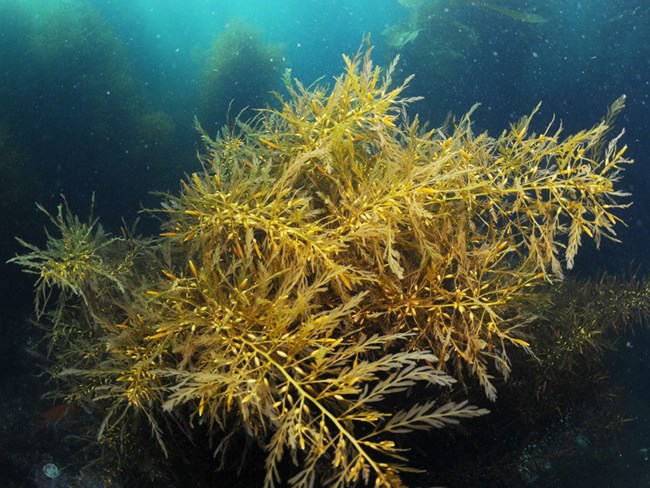
Non-native species invasions are an increasing concern in marine ecosystems around the world. As ships travel the globe with increasing frequency, species from one corner of the world are being moved to the other corner as hitchhikers on or in these vessels. The hitchhikers usually arrive first in harbors, and if conditions are right they survive and reproduce. Once established in a harbor, the invader is increasingly likely to receive assistance from some of the many other nearby boats in spreading further to surrounding waters. One species that succeeded in hitchhiking all of the way from northeast Asia to the kelp forests of the Channel Islands is a brown alga called Sargassum horneri. First observed at Long Beach Harbor in 2003, dense patches of S. horneri now dominate extensive swaths of kelp forest and subtidal habitat at six of the eight Channel Islands. Channel Islands National Park’s long-term Kelp Forest Monitoring Program has been documenting this species continuing spread, as well as the effects it is having on the kelp forest community. Since eradicating S. horneri is virtually impossible in an open ocean environment, the kelp forests will likely be forever changed. Another non-native species of Asian kelp called Wakame, or Undaria pinnatifida, has proven highly invasive in other parts of the world. Undaria pinnatifida is currently thriving in most central and southern California harbors including Ventura and Channel Islands Harbors. It was not observed at Channel Islands National Park until 2016, likely because the islands have few protected waters such as the harbors that this alga prefers. 
Chad King / NOAA MBNMS |
Last updated: April 27, 2017
